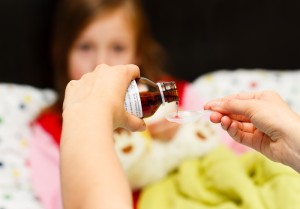 Who knew that your most helpful medicines could be hurting you? Cold and flu season is upon us, bringing with it the season of cough drops and decongestants. At this time of the year, it’s important to remember that sugar and acids aren’t just hiding in your favorite foods. Cough syrups, inhalers, and other culprits in your medicine cabinet could be causing cavities. Dr. Skrobanek and GPS Dental explain how your medicine could be hurting your teeth, and how to protect your smile while using medications.
Who knew that your most helpful medicines could be hurting you? Cold and flu season is upon us, bringing with it the season of cough drops and decongestants. At this time of the year, it’s important to remember that sugar and acids aren’t just hiding in your favorite foods. Cough syrups, inhalers, and other culprits in your medicine cabinet could be causing cavities. Dr. Skrobanek and GPS Dental explain how your medicine could be hurting your teeth, and how to protect your smile while using medications.
Cavity Causing Culprits
Cough Syrup: In an effort to make cough syrups taste better, many companies add flavorings and sugar. While it might make the medicine go down easier, these sugars are just as damaging to your teeth as the sugar in Halloween candy. To make matters worse, cough syrups are often taken right before bed, meaning that sugar wreaks havoc all night long.
Cough Drops: Just like cough syrup, sugar is often added to cough drops to improve their flavor. However, since you hold cough drops in your mouth longer, these can actually be more detrimental to your dental health. Just like hard candy, the sugar from cough drops has more time to hurt your teeth because the cough drop stays in your mouth for a long period of time.
Asthma Inhalers: When using an asthma inhaler, you breathe in a dry powdered form of medicine. While it’s great for breathing easier, it might not be so great for your teeth. That powder could stick to your teeth, and depending on the type of medicine, introduce extra sugar or acid that causes erosion. The amount of damage and erosion is dependent on the type of medicine, but anyone using an inhaler regularly should consider letting their dentist know.
Vitamin C Tablets: Making sure you’re getting adequate vitamin C is a great way to stay healthy during cold and flu season, but it might come at a cost. Vitamin C, also known as ascorbic acid, can weaken the enamel of your teeth, and chewing vitamin C tablets exposes your teeth to the harsh acid.
Antihistamine: Most allergy relieving medications use antihistamines, and they often list ‘dry mouth’ as a side effect. We don’t always think of saliva as an important part of dental health, but producing too little saliva can cause big problems. Saliva works to naturally dilute the acids and sugars in your mouth, washing them away. When antihistamines reduce the production of saliva, as they do in some patients, your teeth don’t get their normal rinse, and they are more likely to develop cavities.
How to Feel Better & Protect Your Teeth while Using Medicine
We’re not suggesting you quit taking cold medicine or using your inhaler! However, if you are regularly using these medications, it’s a good idea to be extra cautious with your hygiene routine. By stepping up your dental care, you can focus on getting better; not worrying about your smile!
- Don’t take cough syrup right before bed. Give yourself time to brush your teeth after taking medications and take it with food or water.
- When possible, take medications like cough syrup with, or right before, a meal. The natural increase of saliva while you eat will help wash away the harmful substances lingering on your teeth.
- Opt for soft gels or caplets you can swallow whole rather than chew.
- Consider toothpastes and mouthwashes with fluoride to help protect your enamel during the duration of your medication.
- If a medication is causing dry mouth, keep water handy to sip on to keep your mouth well hydrated, chew sugar-free gum, or suck on sugar-free candy to help produce saliva. Try to breathe through your nose, rather than your mouth.
If bad habits, medicine, or anything else have taken a toll on your teeth, give GPS Dental a call at (210) 633-3477 to schedule an appointment. Dr. Skrobanek and his team are eager to start your new year off with your best smile yet!







